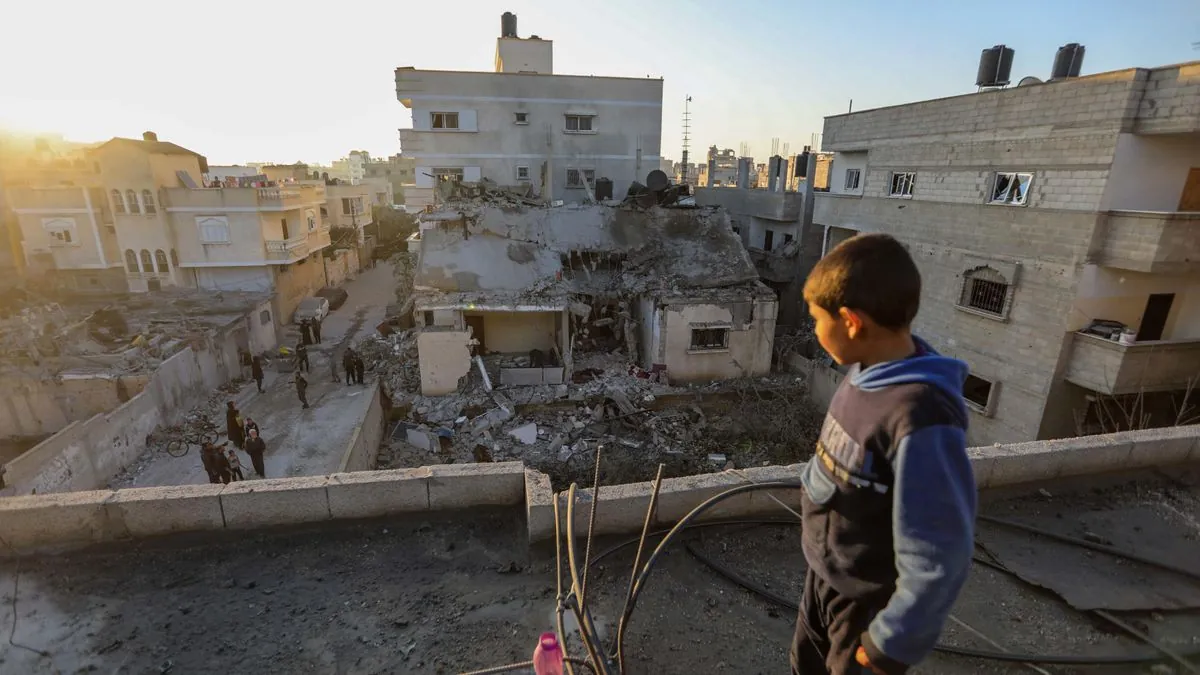One year after Hamas' attack on southern Israel, the Middle East finds itself embroiled in a conflict that has expanded beyond its initial boundaries. The war, which began on October 7, 2023, has evolved from a focused retaliation in Gaza to a broader regional crisis, with potential implications for Iran and its allies.
The conflict's expansion has been marked by Israel's growing involvement in Lebanon, where airstrikes have given way to a ground incursion against Hezbollah militants. This marks Israel's first ground offensive in Lebanon since the 34-day war in 2006. The escalation raises concerns about a potential collision with Iran, which supports various anti-Israel groups in the region.
The impact of this year-long conflict has been devastating. In Gaza, nearly 42,000 people have reportedly lost their lives, representing about 2% of the territory's population. The destruction has reached unprecedented levels, with hospitals, schools, and mosques repeatedly targeted or caught in the crossfire. The Gaza Strip, already one of the most densely populated areas in the world, now faces a humanitarian crisis of staggering proportions.
The conflict has also had significant repercussions for Israel. The October 7 attack resulted in approximately 1,200 deaths and 250 hostages taken, marking the bloodiest day in Israel's history. The country's sense of security has been shattered, and faith in its military has been tested like never before.
Despite the heavy toll, both Hamas leader Yahya Sinwar and Israeli Prime Minister Benjamin Netanyahu appear reluctant to pursue a ceasefire. For Netanyahu, ending the war could mean the collapse of his government and potential legal consequences. Sinwar, believed to be hiding in Gaza's tunnels, continues to make demands that Israel has rejected.
The conflict has exposed the limits of military force for both sides. While Israel claims to have dismantled Hamas' military structure, the group has shown resilience through guerrilla-style ambushes. Similarly, Israel's actions against Hezbollah have failed to halt rocket and missile attacks.
"We will crush Hamas in total victory."
The war has fundamentally altered both Israel and Gaza. Israel grapples with ongoing trauma and a shaken sense of security, while Gaza faces immense destruction and displacement. An estimated 90% of Gaza's population remains displaced, many living in squalid conditions reminiscent of the Nakba in 1948.
The international community's response to the conflict has been largely ineffective. Traditional approaches to Middle East peace, such as the two-state solution proposed in the Oslo Accords of 1993, now seem unrealistic. The United States, long considered the key mediator in the region, has struggled to present a coherent message, simultaneously criticizing Israel's tactics while providing military support.
As the conflict continues, it becomes increasingly clear that new approaches are needed to address the complex realities of the region. The upcoming U.S. presidential election on November 5, 2024, may prove pivotal, as both sides appear to be waiting for its outcome before making significant moves.
The Palestinian diaspora, one of the largest in the world, watches these developments with concern. The conflict's impact extends far beyond the immediate region, affecting millions of Palestinians living outside historical Palestine.
As the Middle East grapples with this ongoing crisis, the need for innovative diplomatic solutions becomes ever more apparent. The international community, including bodies like the Quartet on the Middle East and signatories of the Abraham Accords, faces the challenge of finding new ways to address the root causes of the conflict and pave the way for lasting peace in the region.
